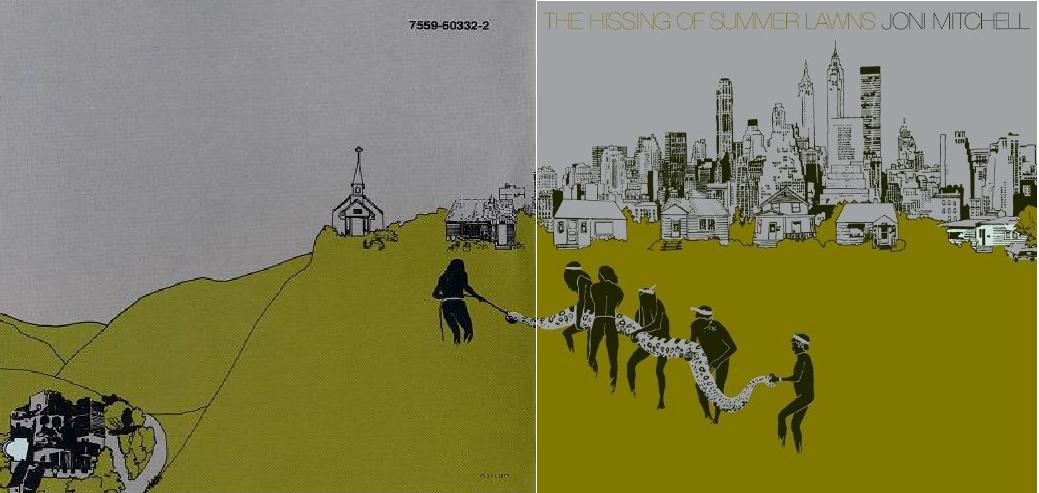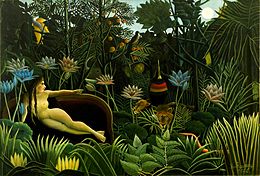
Track List:

I arrived at Leeds University in October 1977 having been brought up almost exclusively on British pop music. Within the space of the first few days there everything changed. This was one of the first albums I borrowed from the huge library of two friendly Geordies who were sharing a room downstairs.
Joni Mitchell's introduction to this album on the inside of the cover starts like this:
This record is a total work conceived graphically, musically, lyrically and accidentally-as a whole .. The poem 'Don't Interrupt the Sorrow' was born around 4am in a New York loft...the child is rebellious and mystical and insists that its conception was immaculate...
From the beginning, this album seemed to me to be at a different level of maturity to anything I had previously heard. This was the English Literature I had come to university for.
But isn't this an album by a woman written primarily FOR a female audience? You can already hear it in these lines. It is true, it is about the position of women in society - how Joni Mitchell has experienced "the war of independence" and how, for her at least, modern music has been instrumental in changing attitudes and society. But there is a more general message here as well. Moreover, it was not only the text which caught my imagination; this album comes from a high-point in Joni Mitchell's career with jazz orientated arrangements. There are some first-class musicians and performances.
The album starts off with a complete tour de force: In France They Kiss on Main Street is three joyous minutes of jazz-pop celebrating the release of youth through rock and roll music:
In the war of independence rock and roll rang sweet as victory
Youth, and in particular girls, are freed from the confines of their parental generation: ("Amour Mama!").
This song has all the hallmarks of great pop music: concise, articulate, filled with exuberant energy, highly-polished and seemingly effortless.
However, before you can get your breath back after these three minutes of
high excitement, or imagine you are settling in for an easy and familiar ride,
the disorientation begins:
 The Jungle Line, retracing the stream of rhythm which has
flown from African drum beats through the negro blues to jazz and rock and roll,
plunges us into Henri Rousseau's jungle, where women are enslaved by the moon
and their male masters.
The Jungle Line, retracing the stream of rhythm which has
flown from African drum beats through the negro blues to jazz and rock and roll,
plunges us into Henri Rousseau's jungle, where women are enslaved by the moon
and their male masters.
Edith (Edith and the Kingpin) and Scarlett O'Hara the Southern Belle from the film 'Gone With the Wind' (Shades of Scarlett) are modern stereotypes but the song Don't Interrupt the Sorrow is a timeless lament for the plight of women in a patriarchal world: from Eve to the "prophet witches" burning at the stake, through to the serving girls working for a living. Until now, woman has been "chained by a serpent to that Ethiopian wall..."; but, in spite of the optimism of the opening track, the album doesn't offer any easy way out. One might imagine that a successful marriage within middle-class suburbia would offer a fulfilling role for a woman within the great American Dream, but here, being the Centrepiece in Harry's House proves to be a failure.
Joni Mitchell is probably best known for one of her earliest songs: Both Sides Now (1969 Clouds album). The chorus is a well-known evergreen:
I've looked at life from both sides now...
The ideas contained in that song (dualism, subjectivity, the fact that any judgement depends on a point of view) are a recurring theme in many songs throughout her career. In Both Sides Now she looks at clouds from above and below, she looks at love from the point of view of give and take, and looks at life for winners and losers. Here too, the album ends with another contrasting pair: Shadows and Light. Yes, the role of women has improved, the battle for liberation has been fought, but depending on your point of view - in the light of youthful optimism or the shadows of disenchantment, the war may not yet be over: life's battle continues.
The penultimate track is one of my favourites: Sweet Bird steps back to take a cosmic view of the human situation. Here we are: golden, but dying.
Power, ideals and beauty
Fading in everyones hand
Is there, she asks, somewhere beyond time, a sweet bird who knows all the answers and who simply laughs at us? This is the 'overwhelming question' which has been asked by many artists before: I think of T. S. Eliot's Prufrock 1917, Bob Dylan's Blowing in the Wind 1962, Douglas Adams' Hitchhikers Guide to the Galaxy 1978.
And the answer? Joni says:
No one knows
They can never get that close
Guesses at most
Coincidentally, another of my all- time favourites use almost exactly the same words to address this question. Coldplay God Put a Smile Upon My Face 2003. Their song ends with the words:
Your guess is as good as mine.
There is an answer, though. Douglas Adams famously came up with it: the number 42. Of course.